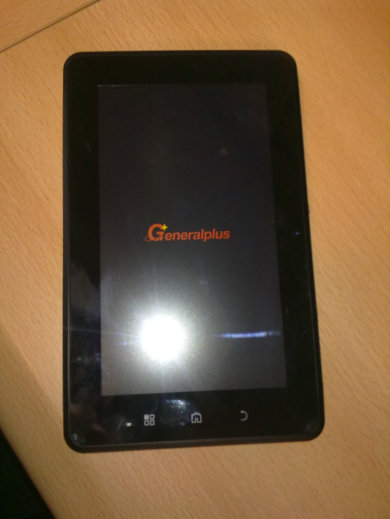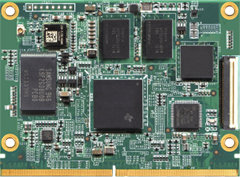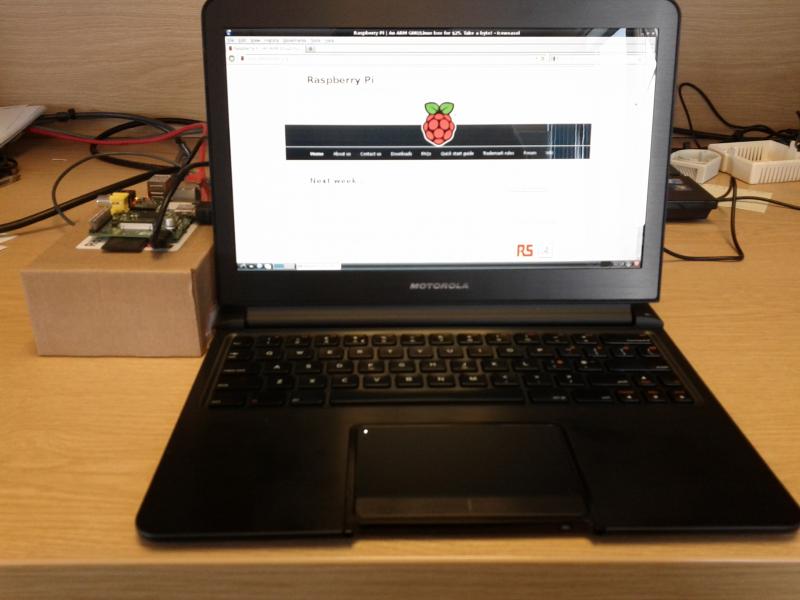Last week, Collabora and Fluendo jointly announced the release of an open source software development kit (SDK ) for GStreamer multimedia framework. The SDK aims at easing the integration of Gstreamer into projects and provides a pre-built version of the framework which is available for Linux, Windows and Mac OS X. GStreamer is used in many Linux applications such as media players (Rhythmbox, Banshee and Amarok), video editors (PitiVi), and media centers such as XBMC among other applications. It’s also often the framework used to play videos on ARM platforms with implementations for OMAP 4/5 and devices compliant with the OpenMAX standard. Gstreamer website has also been updated and provides links to download GStreamer SDK and documentation on the home page. The new documentation looks pretty good with fives main sections: Instructions for installing the SDK on Linux (Ubuntu, Debian and Fedora), Windows or Mac OS. 11 basic and 2 advanced tutorials. […]
Hardware Packs for AllWinner A10 Devices and Easier Method to Create a Bootable Ubuntu 12.04 SD Card
Linaro has a tool called linaro-media-create to install Linaro Ubuntu to an SD card by passing the device, hardware pack file, the rootfs and the board as arguments. Hardware packs are files that contains hardware specific binaries and configs files (e.g. bootloader, kernel…). I’ve done something similar (albeit more basic) for AllWinner A10 devices so that you can easily install and run Ubuntu (and possibly other distributions) on an SD card. I’ve written 2 scripts for this: a10-hwpack-bld.sh – Script to generate evb.bin, build the latest u-boot and linux kernel, retrieve some config files and compress all this in an hardware pack file a1x-media-create.sh – Script to make a bootable SD card for AllWinner A10 devices. You can get the scripts with git:
|
1 |
git clone git://github.com/cnxsoft/a10-tools.git |
I’ve only tested it with Mele A1000, but if you have other A10 devices such as MK802 mini PC or MINI X media player, it should […]
Raspberry Pi Debian Wheezy Alpha, Bodhi Linux Alpha and Pwn, A Security Test Suite
I still haven’t received my Raspberry Pi board, but there have been a couple of interesting Raspberry Pi software news this week. Raspberry Pi Debian Wheezy “Alpha” This is an update to Raspberry Pi Debian Squeeze 6.0, based on Wheezy (Debian 7.0) and the maintainer (Alex) is looking for volunteer to help test it and iron it out, before the Raspberry Pi foundation officially announce the distribution on its blog. This distribution comes will the following: * Scratch, Python, Midori etc as before * A configuration tool for common initial setup tasks (resize root partition, change keyboard layout) * omxplayer * USB drives auto mount * Lots more This is alpha quality, so you can’t expect it something very stable, but if you want to test drive it, you can download it via BitTorrent (447 MB). Sha1sum: bdad7f1c504e22f8d754028843abb9da4330107f. You can login with the following credentials: User: pi | password:raspberry Known […]
GeneralPlus GP3300 Cortex A8 Processor and Android Tablet Reference Design
I’ve recently come across Eken D70 Tablet which is a typical 7″ Android ICS tablet, except it’s product description shows a Cortex A8 chip called GP33003. After some research, I found that this chipset is provided by GeneralPlus (previously part of Sunplus). GP3300x application processor features a cortex A8 clocked at 1 GHz together with a PowerVR SGX531 GPU, and comes in 216pins LQFP package. This SoC integrates LVDS and HDMI, and the company told me that the GP33XX targets “higher resolution displays, but still keep the lower PCB cost, compared to its current competitors”. It also features an hardware video decoder and encoder (up to 1080p), and can handle a 720p full-duplex video conference. That’s about all the information I could get about the SoC itself. I’ll update this post If I find out more. The company also provides a tablet reference design (GP3300xA Tablet) with the following specifications: […]
TechNexion EDM Modules: Open Software and (somewhat) Open Hardware ARM & x86 CPU Modules
TechNexion, a Taiwanese “embedded solution” company, was present at Computex 2012 showcasing their ARM & x86 CPU Modules and corresponding development kits. The company recently created the EDM Standard, an open hardware and software standard for x86 and ARM Computer on Modules available under the creative commons share alike license. Their EDM modules come in three form factors: EDM Compact: 82 x 60 mm (ARM only) EDM Standard: 82 x 95 mm (ARM and x86) EDM Extended: 82 x 145 mm (x86 only) They have already designed 5 modules based on this standard: EDM-CF-iMX6 EDM Compact Module powered by Freescale i.MX6 (solo, dual or quad) EDM-CT-AM437x EDM Compact Module powered by TI Sitara AM437x (single core Cortex A9) EDM-SF-iMX6 EDM Standard Module with Freescale i.MX6 EDM-ST-AM437x EDM Standard Module with TI Sitara AM437x EDM-XI-QM77 EDM Extended Module with Intel QM77 3rd generation i3/i7 core I could not find information about […]
How To Create and Seed a Torrent in Ubuntu Using Transmission Command Line
You may have a server with limited (free) monthly bandwidth, but yet need to share some large files or files that need to be accessed by a large number of people. Instead of sharing your files via your HTTP server, you can share them via BitTorrent instead in order to hopefully save bandwidth. Here are the steps I followed on Ubuntu 11.10, but they should work with any version of Ubuntu, Debian and Mint. Install transmission client and daemon
|
1 |
sudo apt-get install transmission-cli transmission-daemon |
Create a directory to share your files and .torrent files
|
1 |
mkdir ~/p2p |
Copy your file in that directory and create the torrent file with transmission-cli
|
1 |
transmission-create ubuntu.bin.7z -t udp://tracker.openbittorrent.com:80 |
Start transmission-daemon
|
1 |
transmission-daemon -c ~/p2p |
That’s all your need to do. If you want to monitor transmission remotly via a web interface, you can instead run transmission-daemon as follows: transmission-daemon -c ~/p2p -a public_ip Where public_ip is the public ip of your computer. Alternatively, you could also […]
Make Your Own Raspberry Pi Laptop With a Motorola Lapdock
There is a very interested thread over the Raspberry Pi forums started by user veryevil where he explains how he built a Raspberry Pi laptop based on Motorola Lapdock (normally used with Motorola Atrix smartphone). This is actually a real hack, because the Raspberry Pi still have to sit outside and you need to make custom cables. But the result still looks great, and veryevil claims the system runs Linux smoothly with a resolution of 1366×768 and the battery can last for hours. Some other users have joined the party, and improved on the design with shorter cables. You can check that forum post for detailed pictures of each cables. Motorola Lapdock used to be an expensive piece of equipment, but Raspberry Pi users indicated it’s currently discounted to 69.98 GBP on Amazon UK and I found it for 81 USD on Amazon US (AT&T Version) which makes it somewhat […]
Mitac Unveils ARM Based GFX Server at Computex 2012
MiTAC International announced their first ARM server (MiTAC GFX) based on Marvell ARMADA XP SoC and running Ubuntu 12.04 LTS at Computex 2012, in Taipei. This solution appears to be similar to Dell “Copper” ARM server announced last week, which also uses Marvel ARMADA XP and runs Ubuntu 12.04, except its intended to be a real product rather than just a prototype. The MiTAC GFX with ASX-1 module is intended for deployment as a general purpose server where real estate, efficiency and throughput at a realistic price are key factors and typical applications include web hosting, web browsing, email, chat, social media and networking, etc. Later, MiTAC will introduce an ASX-HP (High Performance) module for compute intensive workloads that can be add to GFX system, and ASX modules featuring 64-bit SoC are under development. MiTAC showcased a GFX System with 64 nodes (that’s 256 Cortex A9 cores) at Computex 2012, […]







